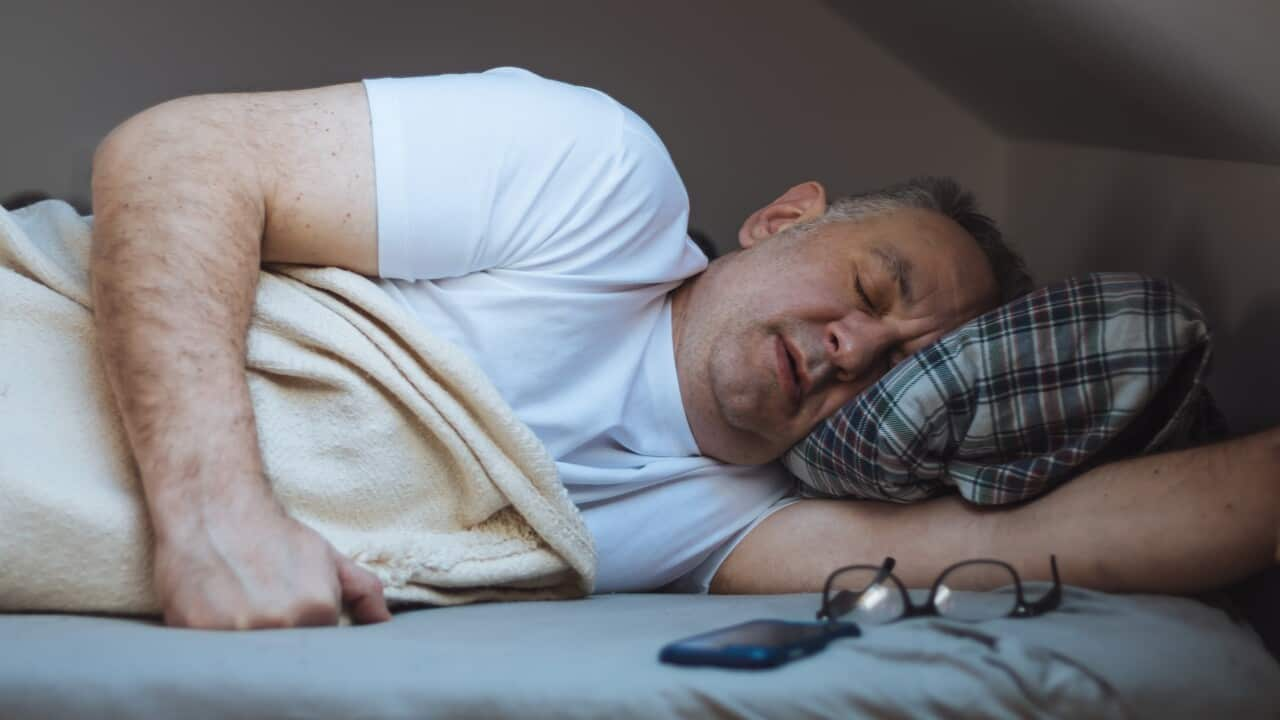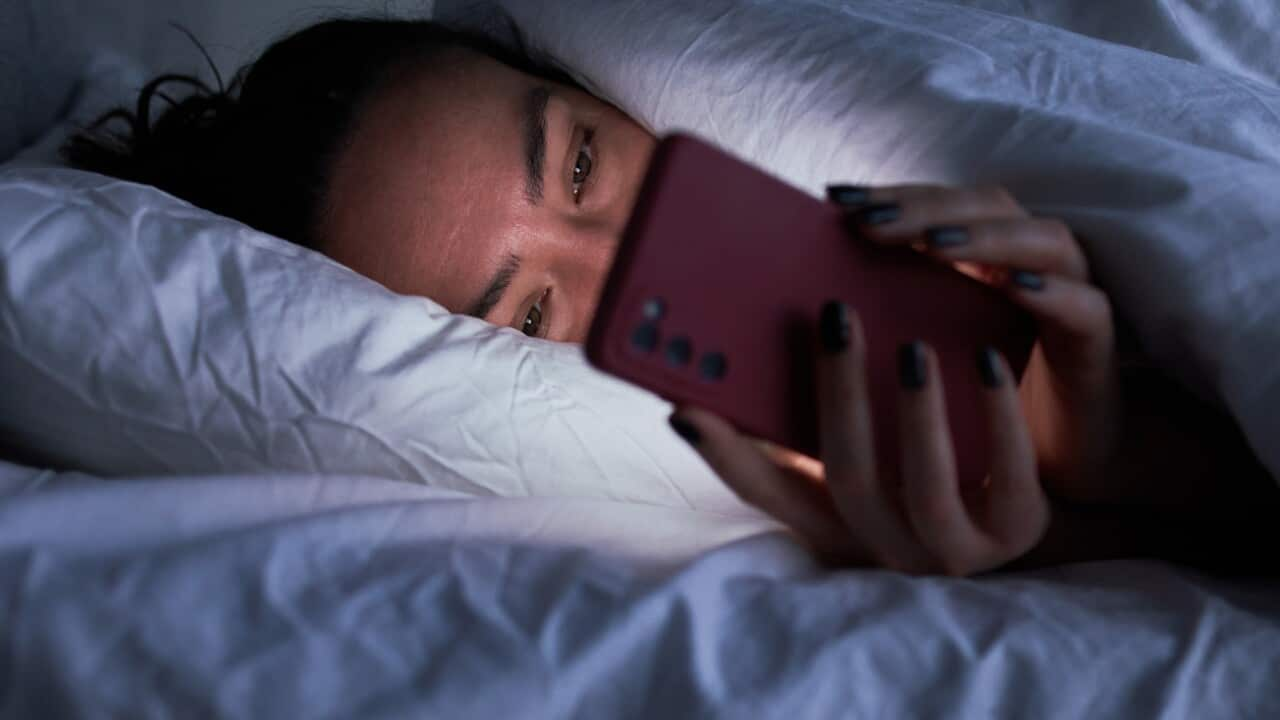Many of us look at our phone as soon as we wake up in the morning, but how many have stopped to consider how this unconscious habit could affect us?
Dr Jacob Crouse, a research fellow at the University of Sydney's Brain and Mind Centre, said checking your phone first thing in the morning is unlikely to directly harm mental health or affect the following night's sleep.
That's assuming you're not using your phone in bed before sleep, as it can be stimulating and may worsen sleep, he said.
"Instead, what is probably more impactful is that spending time on your phone first thing in the morning may be displacing some other kind of activity which may be more beneficial for mental health," he told SBS News.
"For example, it's probably better to spend that time getting outside, going for a walk, and getting some daylight exposure, which we know is critical for resetting the brain's circadian clock (and sending a strong "wake-up" signal to the body) and supporting our health, wellbeing, and next night's sleep."
Chelsea Reynolds, a PhD candidate and clinical psychologist at Flinders University, told SBS News using your phone in bed, whether in the morning or at night, can lead people to associate being in bed with being alert and focused on messages or work.
"The bedroom environment should really just be for sleep because of what's called associated learning," she said.
What this means is that if people are checking their email first thing in the morning, they might associate being in bed with feelings of stress, which the body will remember and could disrupt sleep.
"As much as possible, having stressful things or really alerting things out of the bedroom is a good idea," Reynolds said.
READ MORE

The secret to a better night's sleep
For years, we've been told blue light can disrupt sleep and affect melatonin production.
However, Reynolds was part of a team of sleep experts from Sweden, Australia, and Israel who reviewed 73 independent studies on sleep. They found a link between poor sleep and technology but noted it works both ways.
People who have trouble sleeping might use technology late at night but it doesn't necessarily mean using technology is causing them to lose sleep.
They found light emitted from mobile phones only led to an average loss of two minutes of sleep for thousands of different study participants.
"The light from a screen isn't actually bright enough to affect your melatonin levels or your sleep," Reynolds said.
Reynolds said the theory behind bright light is that intense light, such as sunlight, suppresses melatonin, which is a "sleepiness hormone".
"So during the day, having a light is a really good thing because you don't want melatonin, you don't want to be sleepy, but at nighttime, you don't want to have really bright light because you want to be sleepy," she said.
"If someone's going on their phone first thing in the morning in a dark room with the curtains all drawn and they're on their phone, it's probably not going to actually help them get alert.
"The bright light won't be enough, so it would still be a good idea to open up the blinds and everything."
Reynolds said if using a mobile phone first thing in the morning makes people feel happy and alert, then it's fine.
"For a lot of us, our relationship with sleep and technology is actually okay," she said.
She recommends establishing a morning routine that is pleasant or at least neutral to avoid starting the day stressed, with exercise and eating being key factors in achieving this.











